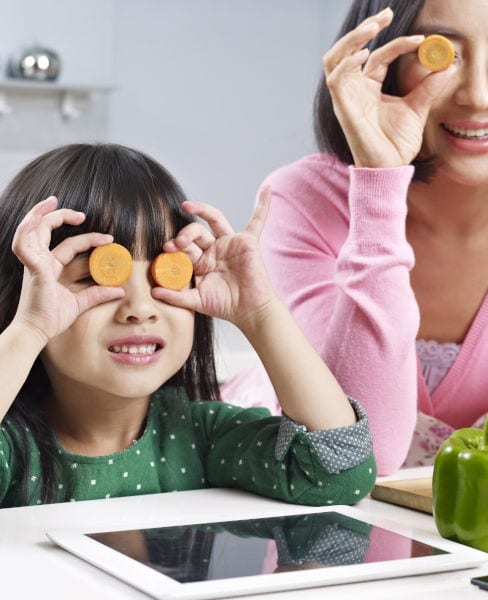Many of us take our sense of sight for granted, but it’s actually very easy to lose. A recent NVISION poll has also confirmed that people consider sight their most important sense. It’s so important that most people would rather die than lose their ability to see.
A 2019 study reported that respondents would rather have 4.6 years of life in perfect health instead of 10 years of life with total vision loss.
Losing sight concerns people more than the loss of memory, speech, hearing, or chronic health conditions, such as HIV/AIDS and heart disease.
Professor of psychology Asifa Majid said: “Scientists have spent hundreds of years trying to understand how human sensory organs work, concluding that sight is the most important sense, followed by hearing, touch, taste, and smell.”
The human brain is responsible for every thought we have and sense that we perceive — including vision. But without the eyes, as posited by the Greek philosopher Aristotle, the brain would have nothing to interpret.

What are the five senses?
For the purposes of the study, scientists sampled 250,000 male and female adults ages 22-80 years old, asking them to rate their hierarchy of the senses by importance. Even though we primarily think there are five senses, the study covered eight.
They are:
- sight
- hearing
- touch
- taste
- smell
- balance
- pain
- temperature
Not surprisingly, vision was ranked number one, followed by vision at a distant second. Balance came in as the third-most valuable sense.
Why is sight so important?
The NVISION poll also included what people would miss most if they lost their vision:
- the faces of loved ones
- their children’s milestones
- the joys of nature
- pets
- television shows and movies
- colors
- sunrise or sunset
- their own milestones
- books
- food (sure it tastes good, but it also looks delicious!)
Eyesight: fact or fiction?
If sight is the most important sense, we should take all possible steps to protect it. However, many people have mistaken ideas of what helps or hurts eyesight. Assil Gaur Eye Institute’s ophthalmologists cover some common eye health myths.

Fact: Carrots really do aid eyesight. They are rich in vitamin A, a nutrient essential for good vision. The vegetable won’t improve poor vision but will help protect your eyes and night vision.
Myth: Sitting too close to the television set will damage vision. Not so. You may get a banging headache, but that’s about it.
Myth: Reading in the dark may damage your eyesight. Another old wives’ tale. Like sitting too close to the TV, you may get a headache.
Myth: My sight gets worse when I wear glasses or contacts. Nonsense! It may look like your sight has worsened when you take your prescription off, but that’s because you are used to seeing correctly.
Fact: Kids with crossed eyes can be treated. Either they outgrow the condition, or we can remedy the problem with non-invasive treatment.
Myth: There’s nothing you can do to prevent vision loss. Of course, there is! Attend regular eye exams so we can track any changes or problems. And call us for treatment at the first sign of eye pain, floaters, or flashes of light.
Myth: A nightlight in my child’s room will cause nearsightedness. No, but it may help them learn to focus and develop critical eye coordination.
Fact: Looking directly into the sun will damage your sight. Of course, you can do permanent damage to your retina. A solar eclipse is the worst time when the sun’s brightness is hidden, but the dangerous invisible rays that permanently burn your eyes are not reduced.
Fact: Artificial sweeteners make your eyes more sensitive to light. Yes, cyclamates cause the eyes to become more sensitive to light.
How to make sure your sight perseveres
Maintaining good sight is not a passive exercise. There are many things you can do to keep your vision healthy.
- Eat a healthy diet. Get plenty of nutrients such as green leafy vegetables, fish, eggs, nuts, fruit, and oysters.
- Quit smoking. Today. Smoking can cause cataracts, damage to the optic nerve, and macular degeneration.
- Wear sunglasses and protect your precious eyes from ultraviolet light.
- Use eye protection when doing sports or working with hazardous materials.
- Take a break from the computer screen. Staring at the screen for long periods can tire the eyes.
- Schedule regular eye exams. At least once a year to ward off diseases such as glaucoma, which has no symptoms.
Why trust Assil Gaur Eye Institute with your favorite sense?
The Assil Gaur Eye Institute represents the country’s highest ophthalmology and patient care standards. This commitment dates back to 1949 when the Institute was chartered by the father of modern cataract surgery, Dr. Robert M. Sinskey.
Dr. Kerry Assil began his career as an academic ophthalmologist working on pioneering techniques and inventions in refractive surgery. From there, Dr. Assil became a renowned surgeon and leader in the field of cataract and LASIK surgery.
The Assil Gaur Eye Institute has assembled a team of top ophthalmology specialists from around the country who offer patients the highest quality healthcare in the United States.
The Assil Gaur Eye Institute is nationally recognized for its compassionate, patient-centric care, commitment to pioneering advances in ophthalmology, and dedication to supporting patients’ health and well-being.
Please call (866) 945-2745 or make an appointment online. At Assil Gaur Eye Institute we take our patients’ safety seriously. Our facility’s Covid-19 patient safety procedures exceed all CDC recommendations to minimize the spread of the coronavirus. Masks are required in our institutes at all times.
We are conveniently located for patients throughout Southern California and the Los Angeles area at locations in or near Beverly Hills, Santa Monica, West Los Angeles, West Hollywood, Culver City, Hollywood, Venice, Marina del Rey, Malibu, Manhattan Beach, and Downtown Los Angeles.













